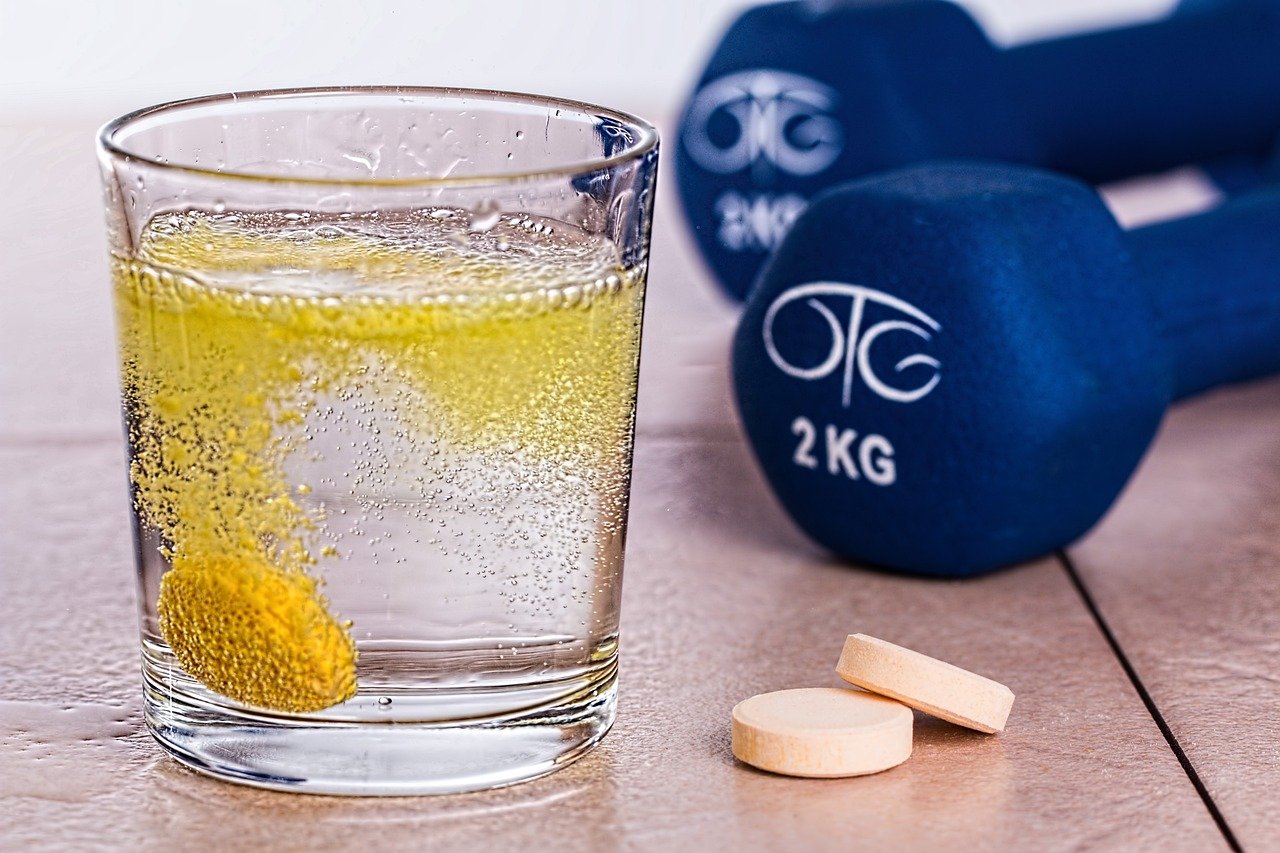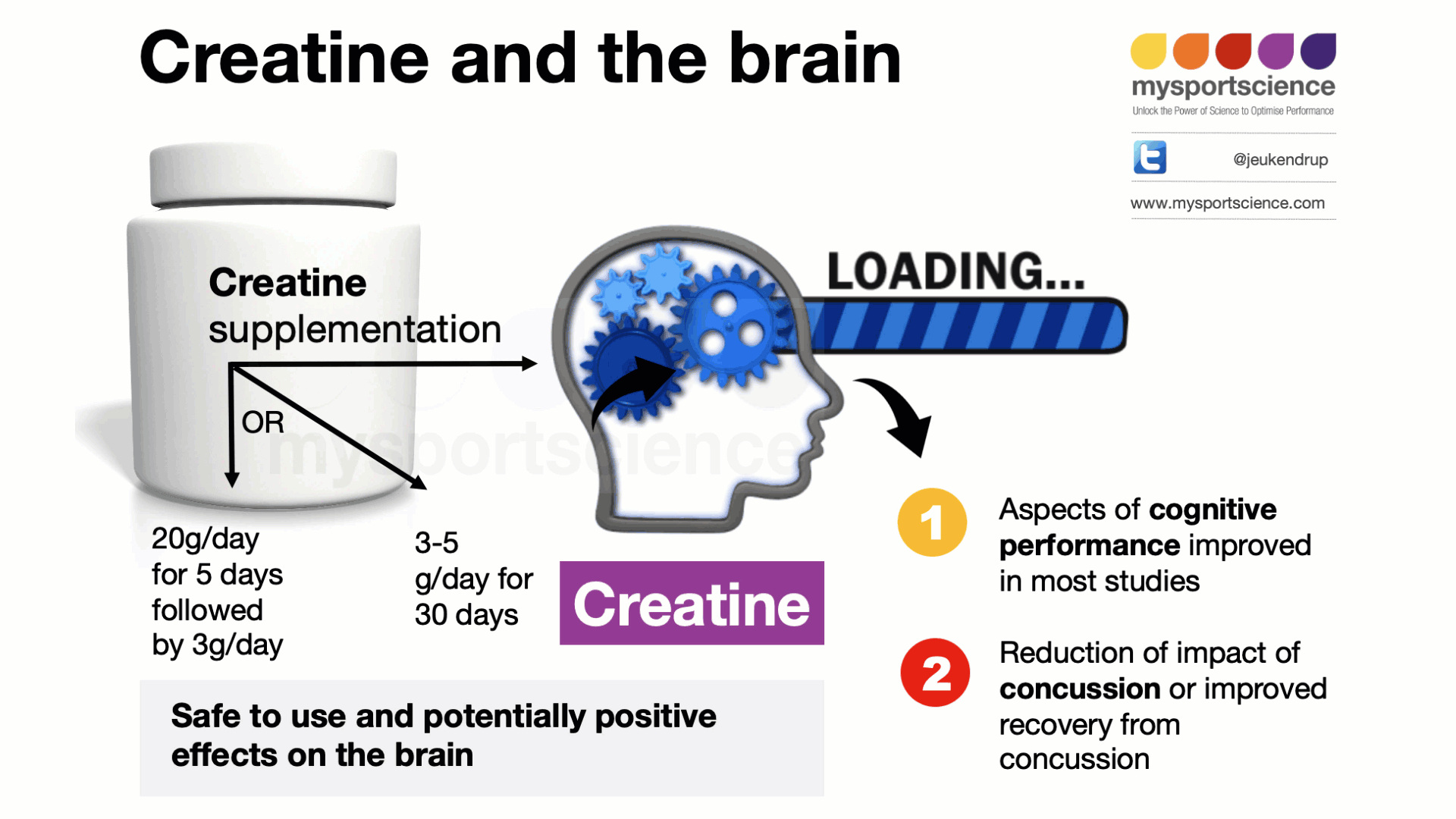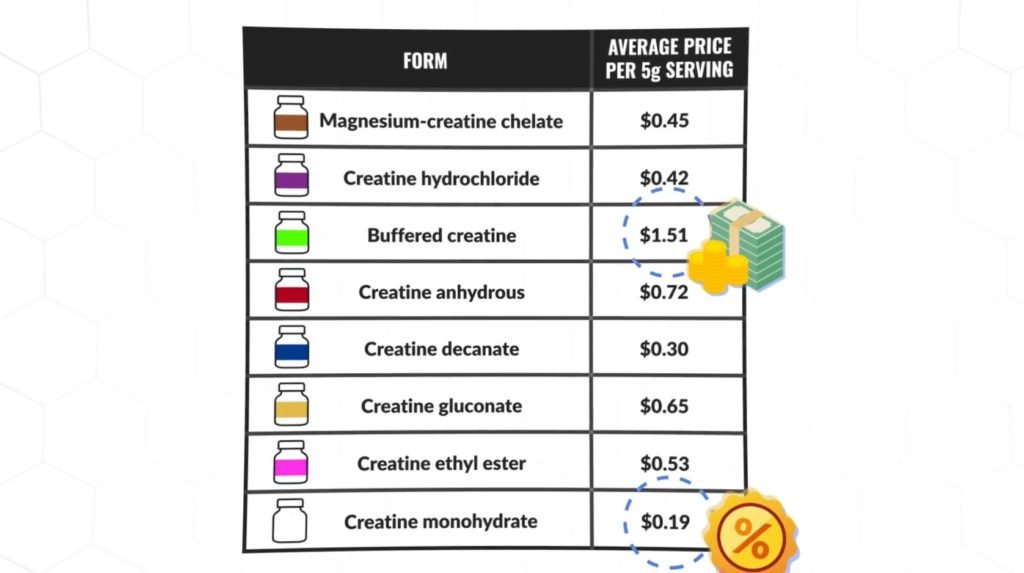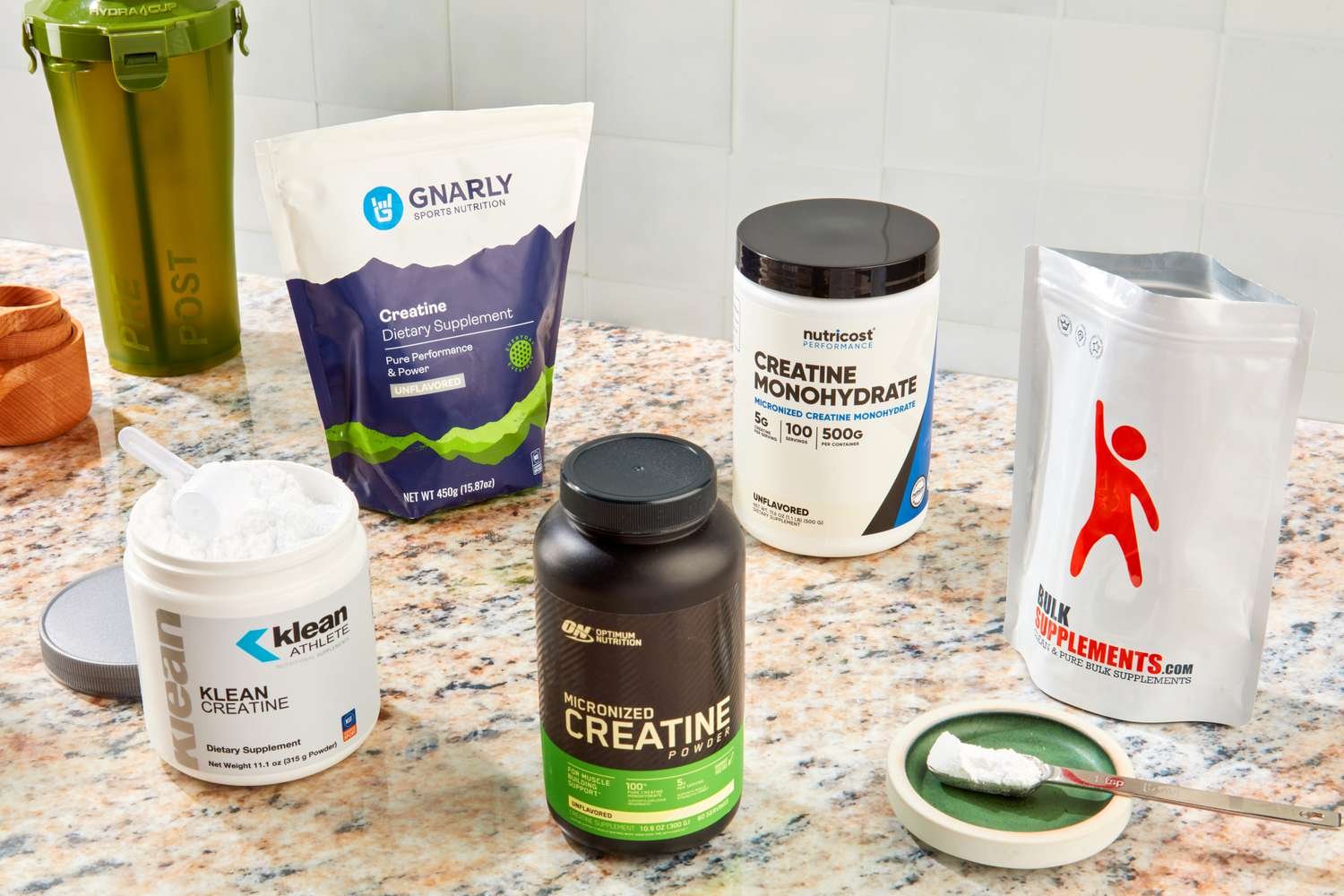Unleash Your Inner Strength and Sharpen Your Mind: The Remarkable Benefits of Creatine for Adults Over 50
Lets consider the remarkable benefits of creatine as we gracefully navigate the landscape of life beyond 50, and our focus shifts towards maintaining vitality, preserving our independence, and embracing each day with energy and clarity. We prioritize healthy eating, perhaps enjoy regular walks or a favorite fitness class, and diligently schedule our check-ups. But have you ever considered a simple, naturally occurring compound that could significantly bolster both your physical strength and your cognitive sharpness? That compound is creatine.
For years, creatine has been a staple in the fitness world, lauded for its ability to enhance muscle mass and power in younger athletes. However, emerging research is painting a compelling picture of its profound benefits for older adults, extending far beyond the realm of bulging biceps. If you’re looking for a safe, affordable, and scientifically backed way to support your muscle health, boost your brainpower, and enhance your overall well-being, then it’s time to take a closer look at creatine.


What Exactly is Creatine, and Why Should You Care?
Creatine is a naturally occurring amino acid found primarily in your muscles and brain. Your body produces some creatine, and we also obtain it through dietary sources like red meat and seafood. However, the amounts we get through diet alone are often insufficient to maximize its potential benefits, especially as our natural production tends to decline with age.
Think of creatine as a vital energy reserve for your cells. It plays a crucial role in the production of adenosine triphosphate (ATP), the primary energy currency of your body. When you engage in physical activity or when your brain demands extra energy for complex tasks, ATP is rapidly depleted. Creatine phosphate helps to quickly regenerate ATP, providing that extra burst of power and sustained energy.
Now, you might be thinking, “I’m not a bodybuilder. Why would I need extra energy for my muscles?” And that’s a valid question. The benefits of creatine for adults over 50 extend far beyond just lifting heavy weights.
The hard truth is aging robs you of muscle, strength, and cognitive sharpness—but creatine fights back. For adults over 50, creatine isn’t just a supplement; it’s a performance enhancer for daily life. Backed by decades of research, creatine has been shown to improve muscle strength, combat age-related muscle loss (sarcopenia), boost energy during workouts, and even support memory and cognitive function. Whether you’re lifting weights or lifting grandkids, creatine helps you stay strong, sharp, and active—without compromising safety.
The Powerful Connection: Creatine and Muscle Health in Older Adults
Sharpening the Mind: The Cognitive Benefits of Creatine

The benefits of creatine aren’t confined to the physical realm. Emerging research is highlighting its exciting potential for supporting cognitive function in older adults:
- Enhancing Memory and Recall: Studies have suggested that creatine supplementation can improve both short-term and long-term memory, as well as recall abilities. Imagine feeling sharper during conversations, remembering names more easily, and having a clearer recollection of recent events.
- Improving Processing Speed: Cognitive processing speed tends to slow down with age. Creatine may help to counteract this by providing the brain with the energy it needs to function more efficiently, leading to faster reaction times and improved mental agility. Think about feeling more mentally quick and responsive in everyday situations.
- Boosting Cognitive Function Under Stress: When the brain is under stress, such as during periods of sleep deprivation or intense mental exertion, creatine may help to maintain cognitive function and prevent decline. Imagine being able to think more clearly and make better decisions even when feeling fatigued or under pressure.
- Potential Neuroprotective Effects: Some preliminary research suggests that creatine may have neuroprotective properties, potentially playing a role in protecting against age-related cognitive decline and neurodegenerative diseases. While this area of research is still evolving, it offers a promising avenue for future exploration.
Lets Look At Some Common Concerns and Misconceptions
Despite the growing body of evidence supporting its safety and benefits, some common concerns and misconceptions surrounding creatine persist:
- Kidney Damage: This is perhaps the most prevalent myth. Numerous long-term studies in various populations, including older adults, have consistently shown that creatine supplementation at recommended doses does not cause kidney damage in healthy individuals. However, individuals with pre-existing kidney conditions should always consult their doctor before starting any new supplement.
- Water Retention and Weight Gain: Some individuals may experience a slight increase in water weight, particularly during the initial stages of supplementation. This is due to creatine drawing water into the muscle cells, which is actually a beneficial effect for muscle hydration and function. This is not the same as unhealthy bloating and typically subsides over time. Significant weight gain is usually associated with increased muscle mass, which is a positive outcome.
- Gastrointestinal Issues: In some cases, high doses of creatine, especially on an empty stomach, can cause mild gastrointestinal discomfort like nausea or diarrhea. This can usually be avoided by starting with a lower dose and taking creatine with food. This is something I struggled with for a long while, never really being comfortable with the powdered form, the simple solution was a switch to Creatine Gummies, not only did they fix the gastro issues but they also taste great and are far easier to take on a regular basis
- “It’s only for young athletes”: As this blog post highlights, the benefits of creatine extend far beyond the athletic population. Its positive effects on muscle health and cognitive function make it a valuable tool for healthy aging.
How to Use Creatine Effectively and Safely
If you’re considering adding creatine to your wellness routine, here’s some practical advice:
- Choose Creatine Monohydrate: This is the most well-researched and cost-effective form of creatine. Other forms have not consistently demonstrated superior benefits. Look for a reputable brand that uses Creapure®, a high-quality form of creatine monohydrate.
- Dosage: A common maintenance dose is 3-5 grams per day. Some individuals opt for a “loading phase” of 20 grams per day (split into four doses) for the first 5-7 days to saturate muscle creatine stores more quickly, followed by the maintenance dose. However, a loading phase is not strictly necessary, and consistent daily use of the maintenance dose will eventually achieve the same saturation levels.
- Timing: Creatine can be taken at any time of day. Consistency is more important than specific timing. Some studies suggest that taking it post-workout might offer a slight advantage for muscle recovery, but this is not definitive. Taking it with a meal may help with absorption and minimize any potential gastrointestinal discomfort.

- Mixability: Creatine monohydrate is generally tasteless and mixes easily with water, juice, smoothies, or other beverages.
- Stay Hydrated: Ensure you are drinking adequate fluids throughout the day, especially when supplementing with creatine.
- Combine with Exercise: The benefits of creatine for muscle health are significantly amplified when combined with regular resistance exercise. Even simple bodyweight exercises or using resistance bands can be effective.
- Consult Your Doctor: While creatine is generally safe for healthy individuals, it’s always wise to discuss any new supplements with your doctor, especially if you have any pre-existing health conditions or are taking medications.
Personal Stories
Imagine Sarah, a vibrant 68-year-old who loves tending her garden and playing with her grandchildren. She noticed she was feeling more fatigued and her strength wasn’t what it used to be. After discussing it with her doctor, she started taking a daily dose of creatine and incorporated some light weight training into her routine. Over a few months, she noticed a significant improvement in her energy levels, found it easier to lift bags of soil, and could keep up with her energetic grandkids without feeling as drained.
Consider John, a retired professor in his early 70s who enjoys reading and engaging in stimulating conversations. He was becoming increasingly concerned about occasional memory lapses. After researching the cognitive benefits of creatine, he decided to try it. While he didn’t expect dramatic overnight changes, he gradually felt sharper during discussions and noticed an improvement in his ability to recall names and details.
How To Make Start With Creatine

The evidence is compelling: creatine offers a safe, affordable, and effective way for adults over 50 to support both their physical and cognitive well-being. From enhancing muscle strength and combating fatigue to potentially sharpening memory and boosting mental processing, this naturally occurring compound holds remarkable potential for enriching your golden years
Are you ready to explore the power of creatine and take proactive steps towards a stronger body and a sharper mind? We encourage you to do your own research, discuss the potential benefits with your doctor, and consider incorporating creatine monohydrate into your daily routine, alongside a healthy lifestyle that includes regular exercise and a balanced diet.
Share your thoughts and any questions you have in the comments below. Have you tried creatine? What were your experiences? Let’s learn from each other and empower ourselves to live our most vibrant and fulfilling lives, well into our 50s and beyond!
news via inbox
Keep up with everything happening by following MyTimeOfLife







